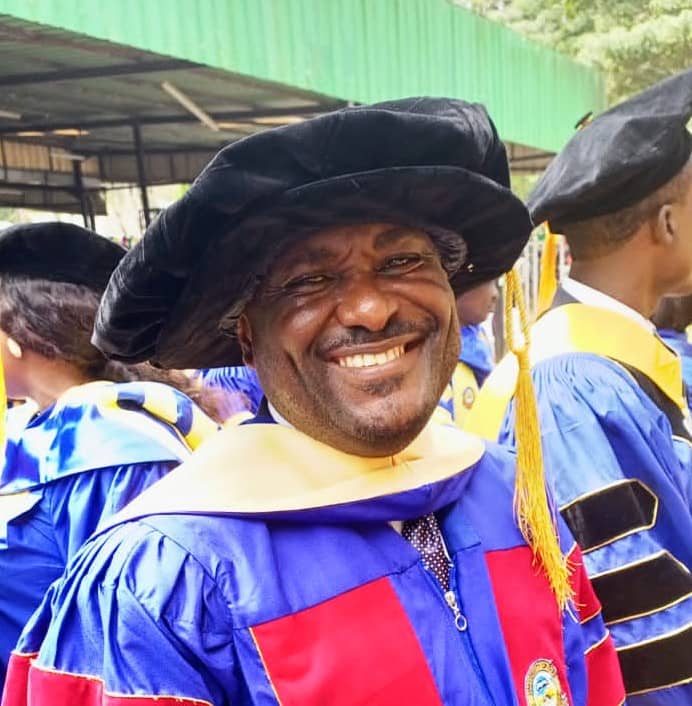Every candidate raises money during elections. Incumbent and opposition alike. In Asia, Africa, Europe, America, and even in Cameroon. So fundraising has never been a problem in itself but the process has been. There are several questions to be asked and answered. For example, who are the donors? Where are they based? Are they nationals or foreigners? Why are they making donations? What are the methods they are using to donate? Is there a ceiling? etc etc. If these questions are not properly answered, then fundraising by candidates during elections can end up being a serious source of conflict during and after elections.
According to France 24 of April 2024, the late Libyan leader Muammar Gaddafi is alleged to have contributed 50 million euros to Sarkozy’s presidential election fund. It raised a lot of questions in France at the time. In Niger and Togo, French businessman Bollore is reported to have financed the campaigns of Togolese President Faure Nyassingue and a former President of Guinea Prof Alpha Conde. Seemingly it was a bitter pill for the opposition to swallow. In 1996 the then president of Nigeria, General Sani Abacha is reported to have funded the African National Congress ANC party of Nelson Mandela during the 1994 presidential election (Sunday Independent, 1996). 1n 1999 Nelson Mandela told a meeting in the town of Lenasia, South Africa, that in 1998 the rulers of Saudi Arabia and the United Arab Emirates had each donated 10 million USD to the ANC’s treasury (Southern Africa Report, 1999). The donations gave undue advantage to the ANC and at the same time it made many to question the raison d’etre of the donations.

Henry E. Mekole, PhD
Put in another form, many asked why such donations had to be made. Was it just for the fun of it? No. Foreign entities, be they states, organizations or individuals always have interests in domestic elections and politics. The interests can range from influencing the domestic and foreign policies of states, the winning of juicy contracts to the shaping of ideologies. In 2018, a federal Grand jury in the United States indicted 12 Russian military intelligence officers for their alleged roles in interfering with the 2016 U.S. presidential election (FBI.gov). One of the charges was conspiracy to commit money laundering. According to an article by U.S. News and World Report Nov. 5, 2024, the U.S. intelligence community stated that Russia and Iran were relentless in their efforts to interfere in the U.S. presidential election.
Efforts by foreign entities to interfere in domestic elections have not only gained ground but have equally shaken “democracies ” around the world. Donations have made it much easier. The advent of the social media has even made a bad situation worse. Recent elections in the U.S.A have heightened awareness across the globe of how changes in social media platforms and campaign financing rules have enabled foreign actors to influence elections especially presidential elections on an unprecedented scale (Ringhand, 2021). A lot of covert and malign financing by foreign actors to political parties, candidates, campaigns and political groups through non-transparent structures and platforms have been documented around the world.
Back in Cameroon, we must admit that fundraising for elections especially presidential elections is trending. The Electoral code and the constitution are tough on the matter. Section 278 of the Electoral code of 2012 states clearly that it is forbidden for any political party to receive subsidies or funding from abroad, foreign persons, organizations, power or states. Technically the social media makes it near impossible for this section of the code to be applied. Most fundraising are done online. Fundraisers or candidates use PayPal and cryptocurrencies making it difficult to trace the donors. In 2018 the presidential candidate for the UNIVERS party Mr Cabral Libii during a press briefing admitted that his team was able to raise money online to help pay the 30 million CFA frs caution required from each candidate (Journal du Cameroun.com, 2018). About 52 million CFA frs was raised in total and a huge portion of the money is said to have been raised out of the country. Apparently no crime was committed but serious questions were never asked as to who were the donors and their motivations. Their nationalities and their locations. What instruments were used to carry out the payment etc etc. That was 2018. We are now in 2025. Candidates will surely raise funds using the social media. Surely donors will make payments through PayPal and cryptocurrencies. Will there be possibilities to trace the donors and their agendas? Does the national agency charged with the responsibility to protect the country’s cyberspace, fight money laundering and financial crimes have the resources to protect the process? These are questions to be answered and urgently too. But as stakeholders reflect on the issue the state must be reminded why candidates chose fundraising as an option. It’s simply because the money made available for campaign appear not to be enough according to many analysts. Reason why as many pundits argue the state must review the amount allocated for the funding of presidential election campaign.
By Henry E. Mekole, PhD. Conflict Resolution.
